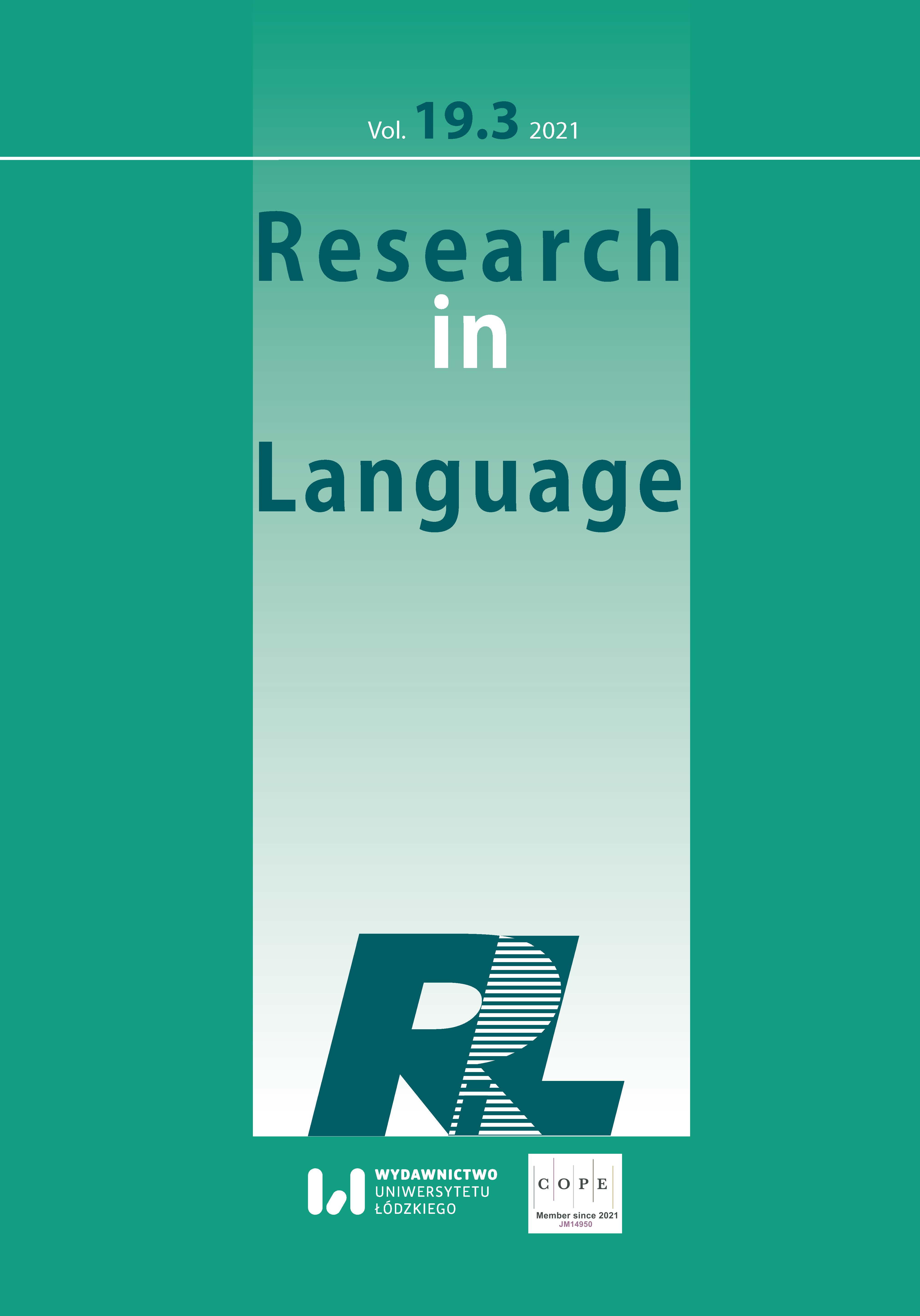Non-Equivalence in Translation: Russian-German Diachronic Corpus-Based Dictionaries of Non-Equivalent Units
DOI:
https://doi.org/10.18778/1731-7533.19.3.06Keywords:
lexicography, translation problems, diachronic bilingual dictionary, the mega-, macro- and microstructureAbstract
This paper explores the essence of lexical units with no direct equivalents in other languages and introduces a bilingual dictionary of a new type. Such a dictionary is built upon a diachronic corpus of parallel translations with due consideration of the principles of present-day lexicography. The suggested diachronic German-Russian glossary of non-equivalent vocabulary – realia – presents the mega-, macro- and microstructure of a diachronic translation dictionary. The glossary is of a holistic character: it can provide information on the ways different realia were translated in various periods and thus reflect the creative role of translation plurality; it can also influence the formation of translating competence, acquisition of translating skills and skills of comparative analysis.
References
Alekseyeva, M.L. 2016. Diachronic Russian-German Glossary of Russian Realia. On the Materials of Asynchronical German Translations of F.M. Dostoevsky’s Novels. Yekaterinburg: Ural State Pedagogical University.
Google Scholar
Alekseyeva, M.L. 2008. Russian Realia in the Mirror of the German Language: Electronic Glossary. Yekaterinburg: Ural State Pedagogical University.
Google Scholar
Alekseyeva, M.L. 2010. Russian Realia in German Translations of Dostoyevsky’s Novels. Yekaterinburg: AMB.
Google Scholar
Alekseyeva, M.L., Menshakova, N.N. and S.V. Abasheva. 2009. From the experience of compiling an electronic encyclopedic dictionary. In New in theory and practice of lexicography: synchronous and diachronic approaches: Proceedings of the VIII International Workshop, Ivanovo. 208-211.
Google Scholar
Averbukh, K.Y. and O.M Karpova. 2009. Lexical and Phraseological Aspects of Translation. Moscow: The Academy.
Google Scholar
Bergenholtz, H. and S. Tarps. 1995. Manual of Specialised Lexicography: the Preparation of Specialised Dictionaries. Amsterdam: Benjamins. https://doi.org/10.1075/btl.12
Google Scholar
DOI: https://doi.org/10.1075/btl.12
Brockhaus, F.A. and I.A. Yefron. 1890. Encyclopedic Dictionary. St. Petersburg: Semenovskaya Publishing House. [Online] Available from: https://www.runivers.ru/lib/book3182/ [Accessed: 15th June 2018].
Google Scholar
Das Fremdwörterbuch. 1990. Mannheim; Leipzig; Wien; Zürich: Dudenverlag.
Google Scholar
De Schryver, G.M. 2003. Lexicographers’ dreams in the electronic-dictionary age. International Journal of Lexicography 16(2). 143-199. https://doi.org/10.1093/ijl/16.2.143
Google Scholar
DOI: https://doi.org/10.1093/ijl/16.2.143
Gorbunov, М.V. 2009. The microstructure of a definition and encyclopedic dictionary of a new type. In New in theory and practice of lexicography: synchronous and diachronic approaches: Proceedings of the VIII International Workshop, Ivanovo. 211-214.
Google Scholar
Devkin, V.D. 2005. German Lexicography. Moscow.
Google Scholar
Dobrowolsky, D.O. 2009. The corpus of parallel texts in the study of culture-specific vocabulary. In The National Corpus of the Russian Language: 2006-2008. New Results and Prospects. St. Petersburg: Nestor-History. 383-401.
Google Scholar
Dubichinsky, V. 2009. Lexicography of the Russian Language: Study Guide. Moscow: Flinta.
Google Scholar
Hartmann, R. R. K. 2003. Lexicography: Critical Concepts. London: Routledge/Taylor and Francis.
Google Scholar
Hartmann, R. R. K. 2001. Teaching and Researching Lexicography. Harlow: Pearson Education Ltd.
Google Scholar
Hartmann, R. R. K. and G. James. 1998. Dictionary of Lexicography. London: Routledge. https://doi.org/10.4324/9780203159040
Google Scholar
DOI: https://doi.org/10.4324/9780203159040
Hewson, L. 2000. L’intraduisible, le traduisible et le traduit. In F. Antoine (ed.), L’intraduisible. Ateliers, 24/2000. Lille.
Google Scholar
Karpova, О. М. 2010. English Lexicography. Moscow: The Academy.
Google Scholar
Kovach, A. 2008. The Poetics of Dostoevsky. Tr. from Rumanian by E. Loginova. Moscow: Vodoley Publishers.
Google Scholar
Kulikov, G.I. (ed.). 2001. German-Russian Dictionary of Countrystudies. Minsk: Vysšaja Škola.
Google Scholar
Manik, S. А. 2001. Social-Political Lexis in Dictionaries of Different Types. PhD thesis. Ivanovo.
Google Scholar
Rubleva, О.S. 2010. Word in an Electronic Dictionary (from the point of view of an electronic resources user). PhD thesis. Tver.
Google Scholar
Shvedova, N.Y. (ed.) 2002. Russian Semantic Dictionary. Moscow: Moscow Academy of Sciences, Institute of Russian language. (RSD)
Google Scholar
Tabanakova, V.D. 1996. Parametric description of English dictionaries. Terminology Studies 1-3. 94-99.
Google Scholar
Tabanakova, V.D. and M.A. Kovyazina. 2006. Functional model of a translation special dictionary. Bulletin of Tyumen State University 4. 158-165.
Google Scholar
Tyulenev, S.V. 2004. Theory of Translation. Moscow: Gardariki.
Google Scholar
Vlakhov, S.I. and S.P. Florin. 1986. Untranslatable in Translation. Moscow: Vysšaja Škola.
Google Scholar
Weschler, R. and C. Pitts. 2000. An experiment using electronic dictionaries with EFL students. The Internet TESL Journal 6(8). [Online] Available from: http://iteslj.org/Articles/Weschler-ElectroDict.html [Accessed: 15th June 2018].
Google Scholar
Downloads
Published
How to Cite
Issue
Section
License

This work is licensed under a Creative Commons Attribution-NonCommercial-NoDerivatives 4.0 International License.










